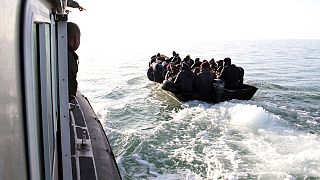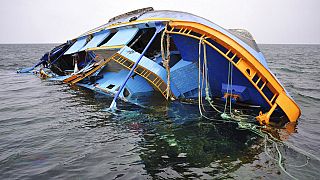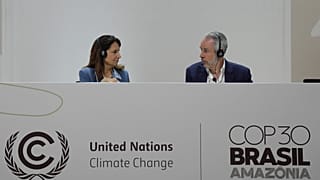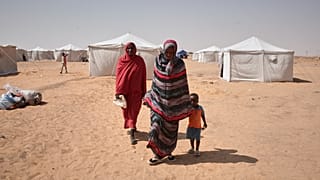Tunisia
In Tunisia, the first floating solar station on a lake next to a Tunis industrial park has started to operate.
The expectation is that the 200-kilowatt project from a French renewables company, Qair, can be a prototype for bigger projects nationwide.
"When we started at the time, it was the first project in Africa for a floating solar power plant, i.e. in the water. The originality of this project means we can use water instead of taking up land that can be used for other things like farming or homes", said Omar Bey, executive for the French-based renewables group Qair.
Using floating solar panels helps to conserve water resources whilst making the panels more energy efficient.
"Floating solar panels first of all allow the reduction of water evaporation when they are installed on a water body. So this evaporation of water in countries like Tunisia, Which is water-stressed, certainly allows the dams to keep more water reserves", concluded the executive.
In 2015 Tunisia set ambitious targets for renewables but last year green sources accounted for only 2.8 percent of the country's energy mix and the rest came from natural gas.
"We're blessed with a lot of sunshine in Tunisia, and it's not like in other places such as the Gulf, the solar panels have the characteristics and the sunshine is good, and we can exploit it, so why not let everyone put up solar panels? The field is developing and will keep on doing so", said Hassen Amiri, manager of Sater Solar energy company.
Tunisia's neighbour, Morocco, is leading in the region. The country currently produces around a fifth of its electricity from clean sources.











01:13
Ethiopia named as host for 2027 UN Climate Summit
02:18
Unique marble mask unearthed at Carthage's Tofet site in Tunisia
01:06
France leads $2.5 billion push to protect Congo’s forest as climate summit urges action
01:00
Prince William's Earthshot Prize honours global climate innovation projects
Go to video
Kenya’s deadly landslides test the country’s climate readiness
01:09
Landslide leaves at least 26 dead in western Kenya